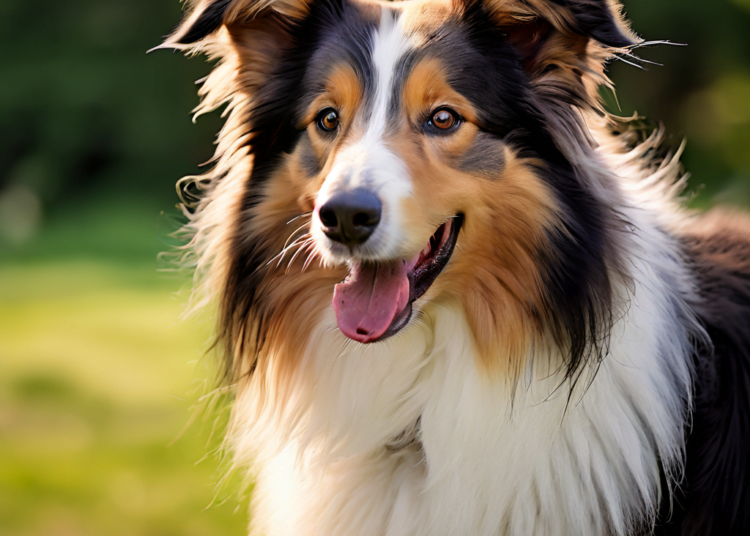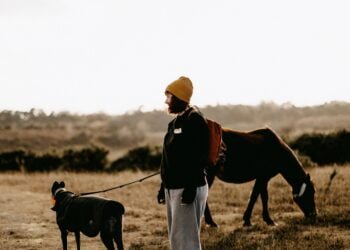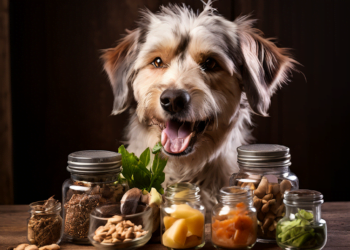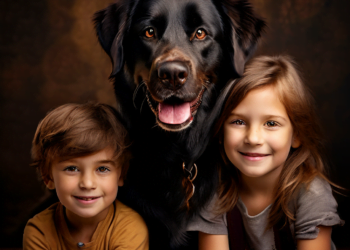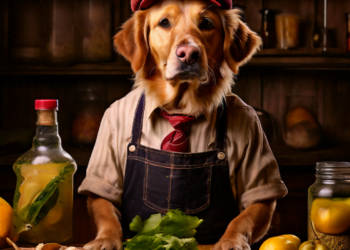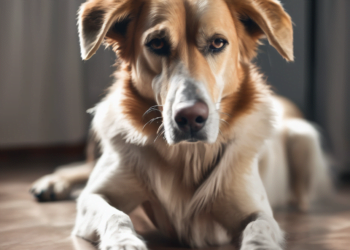Welcome to our comprehensive guide on Collie care, where we delve into essential tips for keeping your beloved Scottish herding dog breed healthy and thriving. Collies are intelligent and charismatic medium-sized dogs that require specific care to ensure their overall well-being. By following these expert tips, you’ll be well-equipped to provide your Collie with the necessary care.
Key Takeaways:
- Collies are a Scottish herding dog breed known for their intelligence and charm.
- Nutrition plays a crucial role in maintaining Collie’s overall health.
- Regular exercise and mental stimulation are vital for an active and happy Collie.
- Grooming your Collie’s beautiful double coat is essential for their coat’s health.
- Regular veterinary care and preventive measures help keep Collies in optimal health.
Table of Contents
Understanding the Collie Breed
Before diving into the care tips, it’s important to understand the Collie breed. Collies are highly intelligent and known for their herding instincts. They are a medium-sized breed originating in Scotland and have gained popularity thanks to iconic characters like Lassie.
Collies are a wonderful addition to any family due to their intelligence and herding abilities. Let’s take a closer look at the unique characteristics that define the Collie breed:
Intelligence
Collies are renowned for their exceptional intelligence. They quickly grasp commands and are eager to please their owners, making them highly trainable and adaptable in various settings.
Herding Instincts
Originally bred as herding dogs, Collies possess strong herding instincts. They have a natural ability to control the movement of livestock and can display these instincts even in a domestic setting.
Medium-sized
Collies are classified as medium-sized, with males typically weighing between 60 and 75 pounds and females weighing between 50 and 65 pounds. Their size makes them suitable for apartment living and larger homes with yards.
Scottish Breed
Collies are a Scottish breed, hailing from the border region between Scotland and England. Their herding skills were originally honed in the pastoral environment of the Scottish Highlands and Lowlands.
“Collies are commonly known for their intelligence and herding instincts, making them a great companion for active individuals or families.”
Now that we have a better understanding of the Collie breed, we can delve into the essential care tips to ensure the well-being of your beloved Collie.
| Key Characteristics | Details |
|---|---|
| Intelligence | A medium-sized breed, males weighing 60-75 pounds and females weighing 50-65 pounds. |
| Herding Instincts | Natural herding abilities and instincts to control the movement of animals. |
| Size | A medium-sized breed, males weighing 60-75 pounds and females weighing 50-65 pounds. |
| Origin | A medium-sized breed, males weighing 60-75 pounds and females weighing 50-65 pounds. |
Nutrition for a Healthy Collie
Providing your Collie with a nutritious diet is crucial to their overall health. A balanced diet ensures Collie receives the necessary nutrients to maintain their energy levels, support their immune system, and promote optimal growth and development. Choosing a high-quality dog food that meets their dietary needs is important for collie nutrition. Here are some key factors to consider:
Specific Nutritional Needs of Collies
Collies have unique nutritional needs that should be met through their diet. As an active breed, they require sufficient protein to support their muscle development and repair. Additionally, collies need a moderate amount of carbohydrates for sustained energy levels. Essential fatty acids such as omega-3 and omega-6 are vital for maintaining healthy skin and a shiny coat. Lastly, collies need a variety of vitamins and minerals to support their overall health and well-being.
Importance of a Balanced Diet
Feeding your Collie a balanced diet is essential for their long-term health. A balanced diet provides all the necessary nutrients in the right proportions, ensuring that your Collie’s nutritional needs are met. It prevents deficiencies or excesses in any particular nutrients, which can lead to health issues. A balanced diet helps maintain Collie’s weight and energy levels and promotes a healthy coat and skin.
Recommended Dog Food Options for a Healthy Collie
When selecting dog food for your Collie, look for options specifically formulated for their breed size, age, and activity level. High-quality commercial dog food brands often provide a well-balanced diet. It’s important to read the labels and choose options that list real meat as the first ingredient and do not contain artificial additives or fillers. Some Collie owners prefer feeding their pets homemade or raw diets. Still, it’s crucial to consult with a veterinarian or canine nutritionist to ensure that the diet includes all necessary nutrients. Here is a table comparing three popular commercial dog food brands for Collies:
| Brand | Ingredients | Nutritional Profile | Price |
|---|---|---|---|
| Brand A | Real meat, whole grains, fruits, and vegetables | High protein, moderate carbohydrates, balanced vitamins and minerals | $$ |
| Brand B | Real meat, limited ingredients, grain-free | High protein, low carbohydrates, rich in essential fatty acids | $$$ |
| Brand C | Real meat, no artificial additives, senior-specific formula | Lower protein, higher carbohydrates, added joint support | $$ |
Remember, it’s essential to consult with your veterinarian before making any changes to your Collie’s diet. They can provide personalized advice based on your Collie’s specific needs, ensuring they receive the nutrition they require for a healthy and happy life.
Exercise and Mental Stimulation
Collies are an active breed that requires regular exercise and mental stimulation to thrive. As natural herding dogs, they have high energy levels and a strong instinct to work. Providing them with ample opportunities for both physical activity and mental enrichment is essential for their overall well-being.
The Importance of Physical Exercise
Regular exercise is important for Collies to maintain a healthy weight and prevent obesity. It also helps them channel their energy productively, reducing the likelihood of destructive behaviors caused by boredom or pent-up energy. Engaging in physical activities benefits their physical health and strengthens the bond between you and your Collie.
Here are some examples of exercises that are suitable for Collies:
- Long walks or hikes: Collies enjoy exploring their surroundings and can provide mental and physical stimulation.
- Agility training: Setting up an agility course in your backyard or participating in organized events can challenge your Collie’s problem-solving skills and agility.
- Fetch: Collies love chasing and retrieving, so playing fetch can be great.
Remember to adjust the intensity and duration of exercise based on your Collie’s age, fitness level, and health considerations. Always consult with your veterinarian before starting or modifying an exercise routine.
Engaging Their Herding Instincts
Collies have a natural herding instinct, which can be utilized during playtime and training sessions. Incorporating activities that tap into this instinct can keep them mentally engaged and satisfied.
Here are some ways to engage their herding instincts:
- Hide and seek: Hide toys or treats around the house or yard for your Collie to find, allowing them to use their tracking and scenting abilities.
- Obstacle courses: Set up a mini obstacle course with cones, tunnels, and hurdles to challenge your Collie’s problem-solving skills and agility.
You can stimulate their minds and fulfill their herding instincts while providing activities that align with their natural abilities while having fun together.
Mental Enrichment for a Happy and Well-Behaved Collie
In addition to physical exercise and engaging their herding instincts, mental stimulation is crucial for Collies. They are highly intelligent and thrive in environments that challenge them mentally. Collies can become bored without adequate mental stimulation, leading to undesirable behaviors such as excessive barking or destructive chewing.
Here are some ways to provide mental enrichment for your Collie:
- Puzzle toys: Invest in interactive puzzle toys that require problem-solving skills and keep your Collie engaged and entertained.
- Training sessions: Teach your Collie new tricks or commands to keep their mind sharp and attentive.
- Scent work: Introduce scent work activities where your Collie uses their sense of smell to locate hidden treats or objects.
Remember to rotate and vary the mental stimulation activities to keep their minds engaged and prevent boredom.
| Benefits of Exercise and Mental Stimulation for Collies | Examples of Exercise and Mental Stimulation Activities |
|---|---|
| 1. Physical health and weight management | 1. Long walks or hikes |
| 2. Mental stimulation and problem-solving | 2. Hide and seek games |
| 3. Bonding and strengthening the human-dog relationship | 3. Agility training |
| 4. Channeling energy and reducing boredom-related behaviors | 4. Fetch |
| 5. Fulfilling natural herding instincts | 5. Obstacle courses |
| 6. Preventing behavioral issues | 6. Puzzle toys |
Grooming Tips for Collies
Grooming is essential to caring for your Collie’s beautiful double coat. Regular grooming helps maintain their coat’s health, keeps them looking tidy, and prevents matting. This section will provide essential tips on properly grooming your Collie, including brushing techniques, bathing frequency, and coat care.
Brushing Techniques
Collies have long and thick fur that requires regular brushing to prevent tangles and keep their coat mat-free. We recommend using a slicker or pin brush to gently remove loose hair and prevent matting. Brush your Collie at least once or twice a week to maintain their coat’s health. Focus on the neck, chest, and hindquarters areas, where matting is more likely to occur. Take your time and be gentle to avoid causing any discomfort to your Collie.
Bathing Frequency
Collies don’t require frequent bathing unless they get dirty or have a strong odor. Over-bathing can strip their coat of natural oils, leading to dry skin and coat. Aim to bathe your Collie every 6 to 8 weeks or as needed. Use a gentle dog shampoo and thoroughly rinse off all the products to avoid any residue. After bathing, pat dry your Collie with a towel and allow them to air dry or use a blow dryer on low heat.
Coat Care
In addition to regular brushing and bathing, there are a few extra steps you can take to maintain your Collie’s coat health:
- Trim the hair between their paw pads to prevent dirt and debris from getting trapped.
- Check their ears regularly for signs of infection and gently clean them with a dog ear cleaner.
- Trim their nails regularly to prevent overgrowth and discomfort.
- Consider using a leave-in conditioner or detangling spray to keep their coat soft and manageable.
Following these grooming tips, you can keep your Collie’s coat healthy, shiny, and free from mats and tangles. Regular grooming sessions allow you to bond with your furry companion and check for skin issues or abnormalities. Now, let’s move on to the next section, where we’ll explore Collie’s health and veterinary care.
| Grooming Tips for Collies | Best Practices |
|---|---|
| Brushing | To maintain the health of their coats, trim the hair between their paw pads, clean their ears regularly, and trim their nails. |
| Bathing | Only bathe your Collie when necessary using a gentle dog shampoo and ensuring thorough rinsing. |
| Coat Care | Trim the hair between their paw pads, clean their ears regularly, and trim their nails to maintain their coat’s health. |
Collie Health and Veterinary Care
Regular veterinary care is essential for maintaining your Collie’s health. By scheduling regular check-ups and vaccinations, you can ensure your Collie receives the necessary care and attention to stay healthy and thriving. Like any other breed, collies may be prone to certain health issues, and early detection is key to effective treatment.
During regular check-ups, your veterinarian will perform a thorough physical examination to assess Collie’s overall health and identify potential issues. They will also administer vaccinations to protect Collie from common diseases and infections.
Common health issues that Collies may face include:
- Collie Eye Anomaly: This is an inherited genetic condition that affects the development of the eye. Regular check-ups with an ophthalmologist can help detect and manage this condition.
- Progressive Retinal Atrophy: This inherited condition leads to progressive vision loss. Regular eye examinations can help monitor and manage this condition.
- Hip Dysplasia: Collies, like many other large dog breeds, may be prone to hip dysplasia, where the hip joints do not develop properly. Regular check-ups and X-rays can help identify and manage this condition.
- Deafness: Collies may occasionally be affected by partial or complete deafness. Regular check-ups can help detect any signs of hearing loss.
- Allergies: Collies may develop skin, food, or environmental allergies. Regular check-ups can help identify triggers and develop treatment plans.
Preventive measures, such as using flea and tick preventatives, regular grooming, and maintaining a healthy diet, can also help keep your Collie in optimal health. It’s important to work closely with your veterinarian to develop a personalized care plan for your Collie based on their needs and health history.
| Health Issue | Prevention | Treatment |
|---|---|---|
| Collie Eye Anomaly | Regular check-ups with an ophthalmologist | Management and supportive care |
| Progressive Retinal Atrophy | Regular eye examinations | Management and supportive care |
| Hip Dysplasia | Regular check-ups and X-rays | Medication, physical therapy, or surgery |
| Deafness | Regular check-ups | Management and supportive care |
| Allergies | Preventive measures (flea and tick preventatives, regular grooming) | Allergy management (dietary changes, medication, allergy shots) |
Remember to consult your veterinarian if you notice any signs of illness or discomfort in your Collie. With regular veterinary care and proactive preventive measures, you can ensure your Collie leads a happy, healthy life.
Training and Socialization
Proper training and socialization are fundamental aspects of raising a well-behaved Collie. By using positive reinforcement techniques and focusing on early socialization, you can help Collie become a confident and friendly dog.
Collie training:
- Begin with basic obedience commands like sit, stay, and come. Consistency is key.
- Use positive reinforcement, such as treats and praise, to reward desired behaviors.
- Break training sessions into short, frequent sessions to keep your Collie engaged.
- Consider enrolling in obedience classes or working with a professional trainer to enhance your Collie’s skills.
Socialization:
- Expose your Collie to various sights, sounds, people, and animals from a young age.
- Gradually introduce your Collie to new experiences, ensuring positive associations through rewards and praise.
- Encourage positive interactions with other dogs and animals to promote good social behavior.
- Provide your Collie opportunities to explore different environments, such as parks or pet-friendly stores.
Remember, Collie training and socialization are ongoing processes. Consistency, patience, and positive reinforcement will help you build a strong bond with your Collie and shape their behavior.
Collie Care for Different Life Stages
Collies go through various life stages, and their care needs evolve. By understanding the specific requirements of each stage, you can provide optimal care for your beloved Collie throughout their entire life.
Puppy Care
During the puppy stage, focusing on their growth and development is crucial. Here are some essential puppy care tips:
- Provide a balanced diet specially formulated for puppies to support their rapid growth.
- Ensure they receive all necessary vaccinations and deworming treatments as your veterinarian recommends.
- Begin socialization early, exposing them to various people, animals, and environments to help them become well-adjusted adults.
- Start basic obedience training using positive reinforcement techniques to establish good behaviors.
Adult Collie Considerations
Once your Collie reaches adulthood, their care needs shift slightly. Here are some considerations for caring for an adult Collie:
- Continue with a balanced diet to maintain their overall health and weight.
- Ensure they exercise regularly, such as daily walks or playtime, to stimulate them physically and mentally.
- Maintain routine veterinary check-ups to monitor their health and catch any potential issues early on.
- Keep up with their grooming needs, including regular brushing and occasional bathing, to keep their coat healthy and free from mats.
Tips for Caring for a Senior Collie
As your Collie enters their senior years, their care requirements change again. Here are some tips to support the health and well-being of a senior Collie:
- They should adjust their diet to meet their changing nutritional needs, which may include senior-specific formulas or supplements to support joint health.
- Provide gentle exercise and mental stimulation tailored to their abilities and comfort level.
- Increase the frequency of veterinary check-ups to detect age-related health conditions and address any concerns promptly.
- Monitor their mobility and provide comfortable bedding to support their joints and overall comfort.
Life Stage Care Comparison Table
| Life Stage | Puppy Care | Adult Collie Care | Senior Collie Care |
|---|---|---|---|
| Nutrition | Specialized puppy food for growth | Maintain balanced diet | Adapted diet for senior needs |
| Exercise | Lots of playtime and short walks | Regular exercise routine | Gentle exercise tailored to abilities |
| Training | Basic obedience training | Continued reinforcement of good behaviors | Support cognitive stimulation |
| Grooming | Regular brushing and occasional baths | Maintain coat health through grooming | Focus on coat and skin health |
| Veterinary Care | Immunizations and regular check-ups | Routine check-ups for preventive care | Increased frequency of check-ups for early detection |
Conclusion
In conclusion, proper care is essential for your collie’s health and well-being. By following the tips outlined in this guide, you can ensure that your Collie receives the nutrition, exercise, grooming, and veterinary care it needs for a happy and fulfilling life.
Remember to focus on maintaining a balanced diet for your Collie, incorporating regular exercise and mental stimulation into their routine, and establishing a grooming regimen that keeps their coat healthy and clean. Additionally, it is crucial to schedule regular check-ups with a trusted veterinarian and address any potential health issues promptly.
By prioritizing your Collie’s care at every life stage, from puppyhood to adulthood and into their senior years, you can provide them with the best chance for longevity and a high quality of life. A well-cared-for Collie is a happy companion and a beloved family member.
FAQ
How often should I brush my Collie’s coat?
It is recommended to brush your Collie’s coat at least once a week to maintain its health and prevent tangles and matting. Regular brushing also helps distribute natural oils and keeps their coat looking beautiful.
What type of exercise is best for Collies?
Collies are an active breed that thrives on physical activity. They enjoy activities that engage their herding instincts, such as herding games or structured agility training. Daily walks and playtime in a secure area are also beneficial.
How often should I take my Collie to the vet?
Regular veterinary check-ups are essential for your Collie’s health. It is recommended to schedule annual wellness exams to monitor their overall well-being, discuss vaccinations, and address any concerns or potential health issues proactively.
Is Collie training difficult?
Collies are intelligent and eager to please, making them highly trainable. Positive reinforcement techniques, such as rewards and treats, work well for Collie training. Consistent training sessions and early socialization can help shape a well-mannered and obedient Collie.
What are common health issues in Collies?
Collies are generally a healthy breed, but they are prone to certain health conditions. These can include Collie Eye Anomaly (CEA), hip dysplasia, and certain types of cancers. Regular veterinary care and genetic testing can help detect and manage these issues.
How should I groom my Collie’s ears?
Regular ear cleaning is important for your Collie’s ear health. Use a veterinarian-approved ear cleaning solution and gently wipe the outer ear with a cotton ball. Avoid inserting anything into the ear canal to prevent injury.
What should I feed my Collie?
Providing a balanced diet is crucial for a healthy Collie. Choose high-quality dog food that is appropriate for their age, size, and activity level. Consult with your veterinarian for specific dietary recommendations based on your Collie’s needs.
How can I socialize my Collie?
Early socialization is crucial for a well-rounded Collie. Expose them to various people, animals, and environments from an early age. Enroll them in puppy classes and organize playdates with other friendly dogs to encourage positive social interactions.


